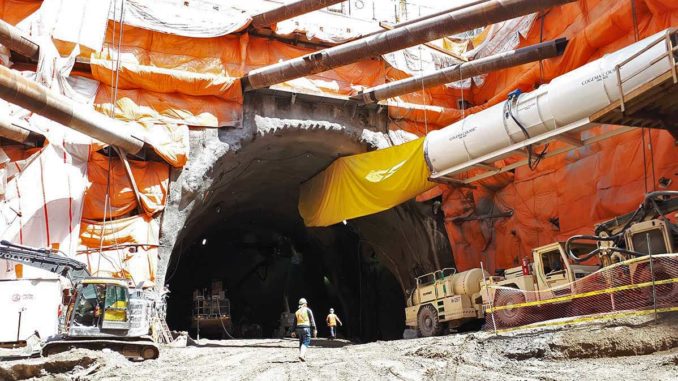
In last month’s Leaside Life, Councillor Robinson provided an update on the Leaside Neighbourhood Transportation Plan (LNTP), a comprehensive blueprint designed to address traffic and road safety concerns within our community. Spearheaded by Toronto’s Transportation Services team, the LNTP aims to identify, recommend, and prioritize changes that enhance safety for all road users, with special attention to vulnerable individuals such as pedestrians and cyclists, including children and seniors. An essential element of this process involves ongoing collection of updated traffic data, which will provide critical insights to shape actionable outcomes. Her call to action was straightforward – to ensure your voice is heard, you should participate in the city’s online survey at www.toronto.ca/LeasideNTP before the September 3rd deadline.
Notably absent from recent Leaside-focused transportation studies, including the LNTP and Laird in Focus initiatives, is consideration for Leaside’s employment lands – the ‘business park’ – home to more than 400 businesses that collectively provide over 10,000 jobs. Informed Leasiders will be well aware that Frederick Todd’s visionary neighbourhood design for Leaside predates contemporary ideas like the ‘15-minute city’ or the ‘live-work’ lifestyle by more than a century! However, given the two sides of Leaside are inextricably intertwined, the obvious question arises: Just how effective can the recommendations made by these transportation studies truly be if they address only half of Leaside’s comprehensive transportation landscape?
LBPA secures $50,000 for transit study
I am pleased to share that this concern has been addressed. Earlier this year the Leaside Business Park Association (LBPA) successfully secured a $50,000 grant from the City of Toronto to fund a transportation study focused on the Leaside business park. This study, a part of the Metrolinx Transit Expansion Construction Mitigation Project, is scheduled for completion by May 2024. The study will provide actionable recommendations aimed at improving the safe and efficient movement of goods and people within the business park, given the escalating demand for all modes of travel in this valuable industrial-zoned employment area in the heart of the city.
The highly anticipated opening of the Eglinton Crosstown LRT, coupled with the eventual introduction of the Ontario Line’s Maintenance Service Facility and Thorncliffe Park station to Leaside, has ignited a surge in development activity within the business park. These transit expansion-related endeavours have sparked concerns among local businesses, particularly those reliant on large transport trucks such as Tremco, Siltech, Lincoln Electric, and St. Mary’s Cement, about the viability of their operations in the future.
As an example, during the Eglinton Crosstown construction, exiting from Brentcliffe onto Eglinton added an additional 30 to 45 minutes to commercial travel times, resulting in escalated transportation costs and reduced productivity. Furthermore, restricted truck turning radii have raised apprehensions about pedestrian safety at intersections. The impacts vary, but businesses in the park contend with congestion, extended travel times, and compromised access due to lane reductions. This scenario is compounded by the increased mingling of pedestrian and cycling traffic along truck routes, prompting discussions about a desire to facilitate the successful coexistence of diverse transportation users and modes within the park and the potential safety risks the mix poses for all stakeholders.
Extended travel times and compromised access
The study’s overarching objective is to ensure sustained functionality and access for businesses during transit construction, while also proposing mitigation measures to accommodate existing and future transportation demands. Specifically, the study aims to: (1) clarify construction impacts across diverse transportation modes, (2) develop safety-focused mitigation strategies conducive to business growth, (3) preserve the LBP’s vibrancy by leveraging its M1/M2 zoning to attract new enterprises while safeguarding existing ones, and (4) foster improved communication and engagement among stakeholders, including park businesses, the City of Toronto, Metrolinx, Leaside Residents Association, and the Cycle Don Valley Midtown group.
The anticipated benefits resulting from the Leaside Business Park Transportation Study and implementation of the recommended mitigation strategies by the City of Toronto are impactful and wide-ranging. They include: enhanced safety for all road users within the park; sustained business operations during transit expansion construction; improved access and mobility to and from the business park; optimized truck access; readiness for increased active and multimodal transportation; fortified collaboration and communication; and an elevated quality of experience for all users of the business park.
By involving stakeholders, harnessing data, and presenting innovative mitigation strategies, this much-needed LBPA transportation study is a key initiative. It will help ensure that the future of the business park is one where public safety, business growth, sustainable employment, and efficient mobility for people and goods coexist harmoniously. As the LBPA navigates these transformative times, the city’s financial support is enthusiastically received. With the LBPA’s proactive efforts and commitment to meaningful collaboration, the employment lands in the Leaside business park will be poised to embrace the challenges and opportunities of the future.
How does the economic activity in the Leaside business park affect transportation in Leaside? Do you feel the arrival of the Eglinton Crosstown and the Ontario Line transit options will increase or decrease traffic congestion and safety for road users in Leaside? How satisfied are you with the progress being made on the Leaside Neighbourhood Transportation Study and the Laird in Focus initiative? Let us know at .


